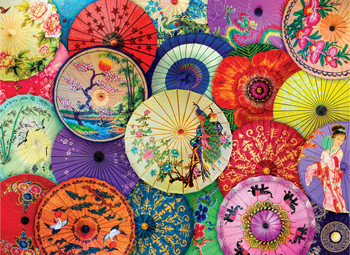
Big Ben puzzles could be something you've heard of if you like puzzles. These puzzles feature Britain's most famous landmark, Big Ben, in a 3D model. Each puzzle contains over 85 pieces. It takes just a few steps to put them together. People enjoy the challenge and satisfaction of big ben puzzles.
Problems with big ben jigsaw puzzles
Milton Bradley's Big Ben puzzle makes a great family activity. It has beautiful colors and a late-twilight view on the clocktower. It has 500 pieces and is a 15-inch x 20.5-inch puzzle. Plus, the puzzle glows in the dark.

Big Ben Jigsaw Puzzles: What is the cost?
Big Ben jigsaw Puzzles are both challenging and enjoyable to complete. This puzzle is 1000 pieces in total and can be bought for a reasonable price. Although it is in excellent condition, the box may be slightly damaged. The jigsaw puzzle might have been stored for a while.
Although the cost of big-ben jigsaw puzzles can vary, most models will be around $25. You can find some jigsaw puzzles that are as rare as the big ben itself. One of these puzzles is a 1978 1000-piece big ben puzzle. Another rarity is the Big Ben Luxe "doors-and-windows collage" jigsaw.
There are many places you can purchase Big Ben Jigsaw Puzzles. They are often cheaper than what you would find in a bricks-and-mortar shop. A great way to save money on a puzzle is to buy it in great condition. By doing this, you can ensure that you get the best deal.

Accessibility of big Ben jigsaw puzzles
Big Ben, a London landmark that is instantly recognisable around the globe, is Big Ben. This puzzle includes the iconic tower that houses London's clock. The puzzle is made out of both paper and expandable plasticstyrene foamboard. It can also be used as an educational tool.
FAQ
What are competitive hobbies, you ask?
You can compete in running, swimming or cycling as well golfing or tennis.
These games are often played by people who enjoy exercise but also offer the opportunity to interact with others.
If you have a hobby that involves physical activity, then you'll probably find that there are other people around who share this interest.
You might consider joining a group or club that meets regularly to play together in sports.
You can also participate in team games where you play alongside others.
These include football (soccer), cricket, rugby, netball, basketball, hockey, baseball, volleyball, badminton, squash, handball, and table tennis.
There are many kinds of competition.
Some competitions exist solely for recreational purposes.
Others are used to assess competitors' abilities.
Yet, there are others that reward exceptional performance.
The winners are awarded prizes in these cases.
Other competitions are intended to test strength and stamina.
These are called endurance events.
For example, marathon races, triathlons, Ironman Triathlon, etc.
Athletes train hard before they compete in these events.
To prepare their bodies and minds, they will have to adhere to a strict training plan.
They might also need to be away from their homes during preparation.
It is important that you remember that not every athlete can compete in every type or event.
What are some good hobbies for seniors to do?
Senior citizens should enjoy engaging in fun activities. Active seniors should take up sports and other physical activities.
They might want to join clubs where they can meet people who share similar interests. They will feel less lonely as their age.
Seniors must also be on the cutting edge of new trends. For example they could keep up to date with fashion, art music, literature, politics, and so forth.
Why do we need hobbies?
Hobbies can be a part of your life because they provide you with time to unwind, recharge, think creatively as well as the chance to exercise, socialize, and relax. These hobbies offer us the opportunity to learn new skills, develop valuable lifelong interests, and provide opportunities for us to do both.
Hobbies help us to find meaning and purpose in our lives.
They are often a great way to spend free time when you don't have much else going on.
They are also very entertaining!
You probably don’t have enough time to pursue hobbies.
You have many choices. You might consider starting a hobby if you don't already have one.
How can I get started in my new hobby?
To start a new hobby, you must first decide what type of activity you would like to do.
After you've decided on your subject, it is important to feel passionate about it.
It is important to know the reason you want to begin a hobby. This will help give you direction and provide a purpose.
Once you've decided what type of hobby you'd like to pursue, you can begin planning.
Consider the equipment that you will need.
You might need to consider whether you should attend classes or seminars.
Make sure that you have enough space in your home for your hobby.
You might also consider joining a club. These groups usually offer support and advice.
Finally, think about how much money you would need to spend on your hobby.
Statistics
- The intensity of the dialogue partners' bond at the end of the forty-five-minute vulnerability interaction was rated as closer than the closest relationship in the lives of 30 percent of similar students. (time.com)
- In comparison, men in the “no humor” condition were refused 84.6% of the time and were only accepted 15.4% of the time. (time.com)
- Much of this decline reflects the fact that teens are less likely to work today than in the past; among employed teens, the amount of time spent working is not much different now than it was around 2005. (pewresearch.org)
- Almost 80% of people claim to have no hobby. (hobbylark.com)
- The Role of the Mind in Sex, Dating, and Love: Men in the “humor” condition received phone numbers from 42.9% of the female participants and were refused 57.1% of the time. (time.com)
External Links
How To
How to learn a music instrument
There are many methods to learn music. You could attend a school, read a book, get lessons from someone who plays a musical instrument, or look at videos online. Here are some tricks and tips to help you find your way.
-
Find something that interests and you. If you don't like any of the instruments you see around, then you should try another one. If you don't like playing an instrument, it would be difficult to learn how to play it.
-
Be patient. It takes time to learn anything new. You don't have to learn everything in one go. Keep practicing each day.
-
You should practice often. Do this even when you feel tired. This will ensure you don't forget what lessons you have just learned.
-
Choose a good place to practice. A quiet room where you won't disturb anyone else is ideal. Be sure to not distract others. Avoid loud music, for example.
-
Have fun. Music is meant to be enjoyed. It is important to have fun when practicing. It will make you more motivated to keep going.
-
Set goals. Setting goals will help you to know exactly what your goal is. There is no excuse for failure.
-
Keep track of your progress. Note down your successes and mistakes. It will help you become a better person over time.
-
Take breaks. Sometimes, all you need is to take a moment to think. Take breaks to allow you to reflect on things.
-
Ask questions. If you have any questions or doubts about the instrument, ask other people. They might be able to assist you.
-
Listening is the best way of learning. Many musicians enjoy listening to their favorite songs and trying to imitate them. This allows them to grasp the basic concepts of the song.
-
Read books. Watching videos or taking classes will not teach you as much as reading books. You will also find information in books that you won't find anywhere else.
-
Get involved in a band. Playing with others forces you to practice more. Plus, it will be easier to meet people with similar interests.
-
View tutorials. Tutorials are short videos that give detailed information on a topic. These videos often focus on one aspect or part of the instrument. Tutorials can be helpful in understanding difficult parts of an instrument.
-
Try different methods. Some people prefer to learn via lectures while others prefer to read. Try different methods until you find the one that works for you.
-
Practice makes perfect. The truth is that nobody becomes an expert overnight. You must work hard to become proficient enough to do well.
-
Play along with other musicians. Listening and learning from others can help you to learn faster.